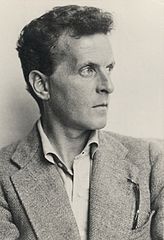It has been over two months since I have seen any massage clients. I have barely left the house: picking up a pizza once a week, taking walks in the nearby arroyo, practicing Tai Chi Chuan. Many are in the same boat. Others are forced to continue working at essential jobs, bravely bearing the risk that entails. There is no way for me to practice my profession of eleven years remotely. I do teach chess lessons online, which adds a little structure to my days. I talk to my adult children on the phone, keep up a little with some long-term clients. Living with my girlfriend, her daughter and our dogs means I am not too lonely. Life during the pandemic has been mostly relaxing and physically healing. Earlier this year I was complaining that my vigorous massage practice was taking a toll on my body and mental energy. I am actually grateful for the downtime. Somewhat.
Over the past few days I struggled with the decision of whether to resume my practice or wait another month. As of yesterday my state is allowing massage therapists to see clients as long as we conform to a set of COVID-safe procedures. In April the models were predicting that the first wave would have passed by now, but while the trends of the past few weeks have been good, the virus is still almost as prevalent in the community as it was at the peak. The models now predict that the tapering of cases we were supposed to see by May 18 will not occur until early July. With reopening taking place now (early June) combined with mass protests and social unrest, it seems quite possible we will see a resurgence within a few weeks. So I made the painful and costly decision to delay. I had to cancel about forty appointments yesterday, with personal emails sent to each client to explain my decision. They took it well, and most have already booked appointments for July and August.
So now begins what I hope will be the final thirty days of a three-and-a-half month hiatus. It has been excruciating. For a quarter of a century beginning in the 1980s I either worked in offices or as a professional accompanist. I loved my work, but I often found the culture of touch deprivation left me feeling like a vaporous spirit. Was the world real or only virtually real? I didn’t realize the degree to which I am tactile. I need physical touch to know that I really exist. Going to massage school and becoming a professional massage therapist gave me a “license to touch.” The structure of the profession and the ethical training I received has made it so that my daily immersion in a world of healing touch is safe and healthy. I have helped a lot of people. I enjoy the one-on-one conversations. Over the past eleven years I have gotten to know some clients very well: I’ve heard their life stories. I have accompanied them through births, deaths, illnesses, career changes, marriages and divorces. Most of all I know how their life experiences and challenges affect their bodies. It is an honor and a privilege to be an important part of their lives. Imagine what it has been like for me to be sequestered in a virtual house arrest for two-and-a-half months!

